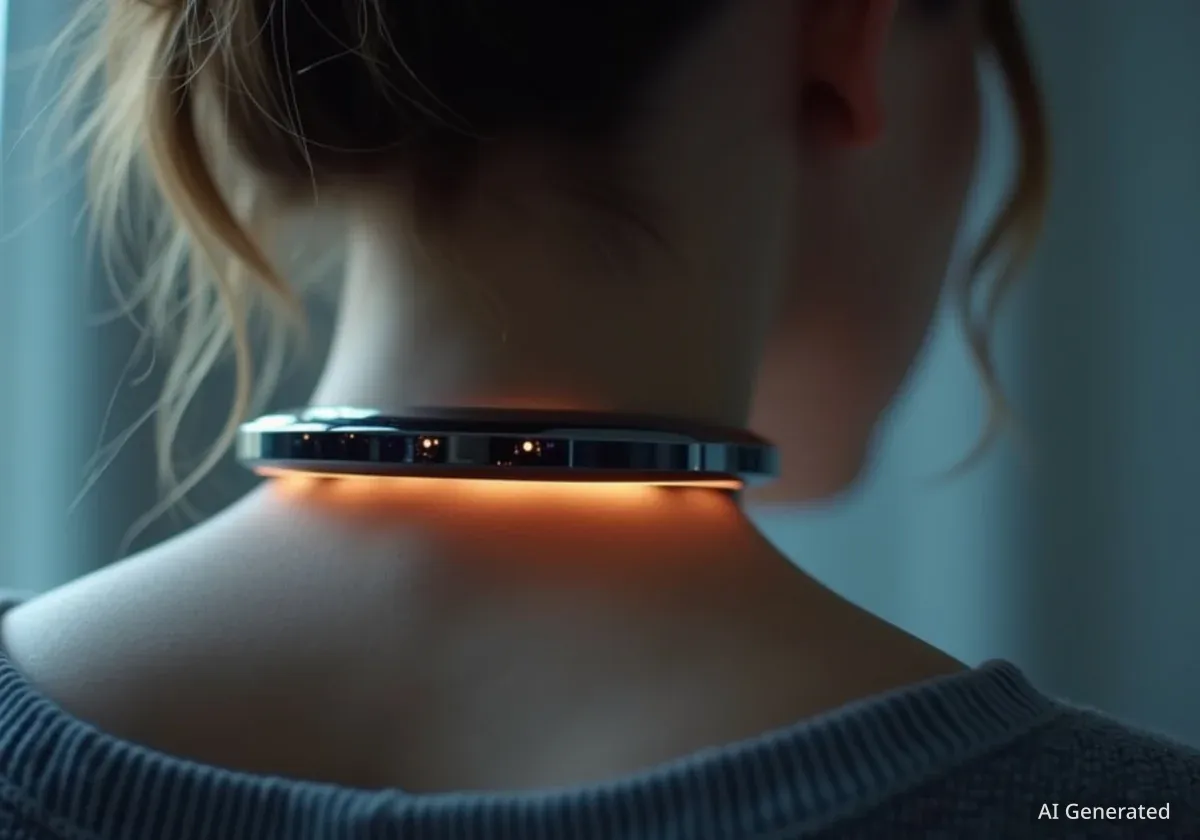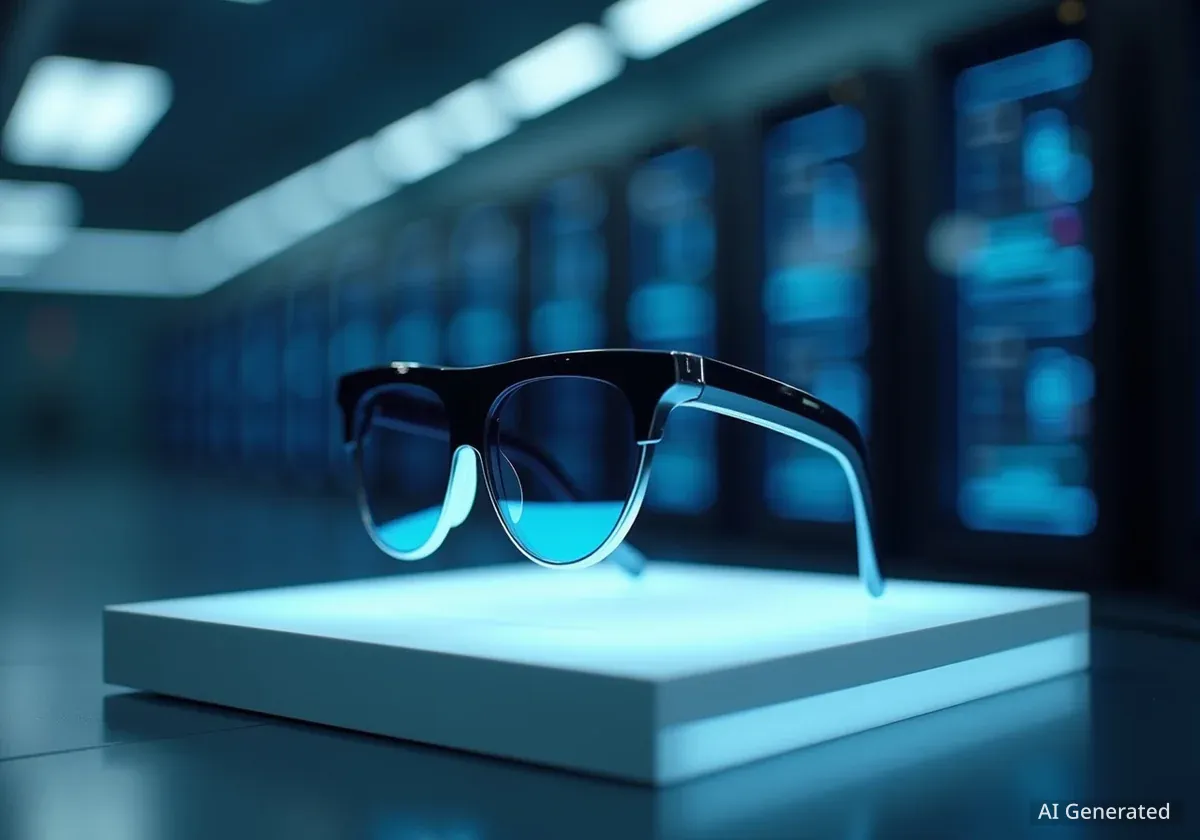A new wearable device called the Friend AI necklace has gained significant attention through a widespread advertising campaign, promising a constant AI companion. The product, created by 22-year-old founder Avi Schiffmann, has raised approximately $7 million in venture capital. However, hands-on testing reveals a significant gap between the device's marketing and its current real-world performance.
Key Takeaways
- The Friend AI necklace struggles with basic functions, including accurately hearing user speech and responding without significant lag.
- Founder Avi Schiffmann acknowledges the product's technical shortcomings and states his team is actively working on improvements.
- The device's terms of service include clauses for collecting biometric data, including audio and voice, to train AI models, raising privacy questions.
- Despite generating nearly $400,000 in sales from about 3,000 units, the product's functionality often fails to match its ambitious marketing claims.
The Promise of an AI Companion
The Friend necklace is marketed as a wearable AI that is always listening, designed to provide contextual companionship and support throughout a user's day. The concept, as explained by founder Avi Schiffmann, is to create a device that understands the user's life so deeply it can offer insights no human friend could.
Schiffmann, who previously gained recognition for creating a widely used COVID-19 tracking website at age 17, envisioned a device that could recall details from past conversations and provide meaningful feedback during important life events. He suggested it could help a user analyze a situation like a breakup by having been present for the entire context.
Background on the Founder and Funding
Avi Schiffmann dropped out of Harvard after one semester to pursue high-profile projects. His track record helped secure around $7 million in funding for Friend from investors including Pace Capital, Caffeinated Capital, and Solana co-founders Anatoly Yakovenko and Raj Gokal.
The company has sold approximately 3,000 units, generating just under $400,000 in revenue. According to Schiffmann, only 1,000 of those units have been shipped to customers, and most of the revenue has been spent on production and a large-scale advertising campaign.
Evaluating Real-World Performance
In practice, the Friend necklace exhibits significant functional challenges. Two weeks of testing revealed consistent issues that undermine its core purpose. The most prominent problem is its inability to reliably process audio.
Users may need to speak directly into the pendant and repeat themselves multiple times for the device to register a command or question. Even when it does hear correctly, the response time is slow, often taking 7 to 10 seconds to generate a reply. This lag makes natural conversation impossible.
Furthermore, the device frequently disconnects or fails to respond at all. When confronted with these performance issues, Schiffmann did not dispute the findings. His consistent response was, "We’re working on it," indicating an awareness of the product's current limitations while emphasizing its future potential.
The AI's Personality and Behavior
The AI's personality, which a user can name, often comes across as anxious and unhelpful. It struggles to distinguish between direct conversation and background noise, causing it to interrupt or send irrelevant text messages based on overheard chatter. For example, it might comment on a private conversation with a coworker or manager, misinterpreting the context entirely.
A 'Lobotomized' Personality
According to Schiffmann, the AI's personality was intentionally made more neutral after earlier, sassier versions prompted user complaints. He admitted to having "lobotomized" the personality, which was originally modeled after his own.
The device also demonstrated poor memory, a critical flaw for a product intended to build context over time. In one instance, it forgot the user's name, and in another, it incorrectly stated their favorite color after being told the correct one days earlier. These failures in basic data retention contradict the promise of a deeply knowledgeable personal AI.
While there were rare moments where the device showed flashes of contextual awareness—such as correctly identifying a comedian's performance style or remembering a detail from a past story—these instances were exceptions rather than the rule.
Marketing Spectacle and Public Reaction
The launch of Friend was supported by one of the largest advertising campaigns in the New York City subway system this year. With 11,000 posters, some covering entire stations, the campaign aimed for mass visibility. The slogans used were designed to evoke a sense of neediness, with phrases like "I'll never bail on dinner plans" and "I'll binge the whole series with you."
The public response was mixed. The posters were quickly defaced with critical graffiti, including comments like "Surveillance capitalism" and "Get real friends." Schiffmann claimed this was an intentional part of the strategy.
"I wasn’t sure it would happen, but now that people are graffitiing the ads, it feels so artistically validating. The audience completes the work. Capitalism is the greatest artistic medium."
He stated the ads were designed with blank space to invite such reactions, framing the public backlash as a form of artistic engagement. This approach highlights a focus on generating conversation and controversy as a core part of the marketing plan, even as the product itself remains a work in progress.
Privacy and Data Collection Concerns
Before using the Friend necklace, users must agree to terms of service that raise significant privacy concerns. The legal agreement requires users to waive their right to a court trial, forcing disputes into arbitration in San Francisco.
More importantly, the terms include a "biometric data consent" clause. This gives the company permission to collect extensive data, including:
- Audio recordings
- Video data
- Voice data
The agreement states this data can be used to train the company's own AI models. For a device marketed as a trusted "friend," this level of data collection reads more like a surveillance waiver.
Schiffmann described the terms as "a bit extreme" but necessary for a first-of-its-kind product. He stated there are no current plans to sell user data or use it to train third-party AI models. To avoid regulatory complications, the company is not currently selling the device in Europe. Schiffmann seemed to anticipate legal challenges, noting, "I think one day we’ll probably be sued, and we’ll figure it out."
Conclusion: A Product Not Yet Ready
The Friend AI necklace is an ambitious concept that currently falls far short of its promises. The hardware and software suffer from fundamental performance problems, including poor audio reception, significant lag, and unreliable connectivity. The AI's inability to retain basic information or understand social context makes it more of a nuisance than a companion.
While the founder's vision and marketing efforts have successfully generated public interest and debate, the product itself feels like an early-stage prototype. The large gap between its advertised capabilities and its actual performance, combined with serious privacy implications, suggests that the future of AI friendship, at least in this form, has not yet arrived.


